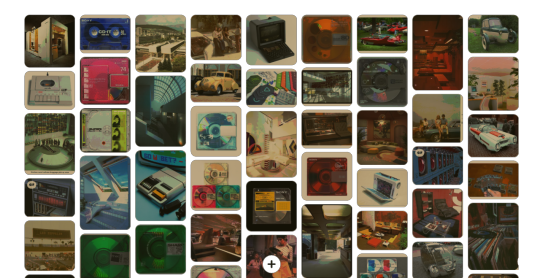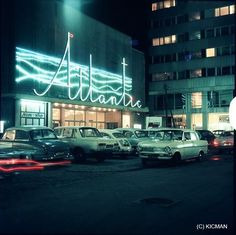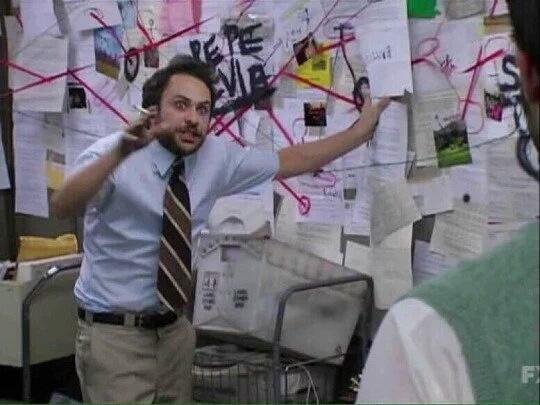#autofiction era
Explore tagged Tumblr posts
Text




A stretchy, stretchy boy in Manchester and Leeds
11 notes
·
View notes
Text
twenty books in spanish, tbr
for when i'm fluent!! most with translations in english.
Sistema Nervoso, Lina Meruane (2021) - Latin American literature professor from Chile, contemporary litfic
Ansibles, perfiladores y otras máquinas de ingenio, Andrea Chapela (2020) - short story collection from a Mexican scifi author, likened to Black Mirror
Nuestra parte de noche, Mariana Enríquez (2019) - very long literary horror novel by incredibly famous Argentine journalist
Canto yo y la montaña baila, Irene Solà (2019) - translated into Spanish from Castilian by Concha Cardeñoso, contemporary litfic
Las malas, Camila Sosa Villada (2019) - very well rated memoir/autofiction from a trans Argentine author
Humo, Gabriela Alemán (2017) - short litfic set in Paraguay, by Ecuadoran author
La dimensión desconocida, Nona Fernández (2016) - really anything by this Chilean actress/writer; this one is a Pinochet-era historical fiction & v short
Distancia de rescate, Samanta Schweblin (2014) - super short litfic by an Argentinian author based in Germany, loved Fever Dream in English
La ridícula idea de no volver a verte, Rosa Montero (2013) - nonfiction; Spanish author discusses scientist Maria Skłodowska-Curie and through Curie, her own life
Lágrimas en la lluvia, Rosa Montero (2011) - sff trilogy by a Spanish journalist
Los peligros de fumar en la cama, Mariana Enríquez (2009) - short story collection, author noted above
Delirio, Laura Restrepo (2004) - most popular book (maybe) by an award-winning Colombian author; literary fiction
Todos los amores, Carmen Boullosa (1998) - poetry! very popular Mexican author, really open to anything on the backlist this is just inexpensive used online
Olvidado rey Gudú, Ana María Matute (1997) - cult classic, medieval fantasy-ish, award-winning Spanish author
Como agua para chocolate, Laura Esquivel (1989) - v famous novel by v famous Mexican author
Ekomo, María Nsué Angüe (1985) - super short litfic about woman's family, post-colonial Equatoguinean novel; out of print
La casa de los espíritus, Isabelle Allende (1982) - or really anything by her, Chilean author known for magical realism; read in English & didn't particularly love but would be willing to give it another try
Nada, Carmen Laforet (1945) - Spanish author who wrote after the Spanish civil war, v famous novel
Los pazos de Ulloa, Emilia Pardo Bazán (1886) - book one in a family drama literary fiction duology by a famous Galician author, pretty dense compared to the above
La Respuesta, Sor Juana Inés de la Cruz (1691) - i actually have a bilingual poetry collection from our favorite 17th century feminist Mexican nun; this is an essay defending the right of women to be engaged in intellectual work (& it includes some poems)
bookmarked websites:
Separata Árabe, linked by Arablit
reading challenge Un viaje por la literatura en español
#spanish langblr#spanish notes#can you imagine that if i grind i can start reading these this time next year?!?!?#3#nowtoboldlygo posts
157 notes
·
View notes
Text

The American No by Rupert Everett
The actor, writer and director mines his own backlog of unmade projects to create an exhilarating collection
Rupert Everett prefaces his suite of short stories with an account of the showbiz ruse that provides the title, a grim little routine whereby American film producers intoxicate a would-be screenwriter into feeling that a deal has been done, only to then forget them entirely. Will Everett’s readers offer up the English equivalent, murmuring “Darling, you were marvellous” before moving swiftly on? Well, the collection certainly delivers what Everett’s fans will be hoping for: quality time in his inimitable company. But it also delivers much more. Sometimes, it is simply the energy and poise of the prose that arrest one’s attention; often, it is Everett’s combination of studied carnality with an outlandish gift for invention. This is a storyteller unafraid to spike his black comedy with sudden and strongly brewed emotion – and vice versa.
In his frequent interjections, Everett is disarmingly frank about these stories’ origins. In 20 years of making pitches to TV and film producers, only one project of his has ever landed. This was his directorial debut, The Happy Prince, a meditation on Oscar Wilde’s fall from grace which got considerably more of Wilde’s rage and sorrow on to the screen than many more respectable versions (elements of the film are reworked in the second of these stories). But that was back in 2018, and these days, Everett’s phone isn’t ringing. A rain swept encounter with a former Soho contact sparks the idea that he could usefully bring some of his rejected ideas into a new kind of life. The result is intriguing, not least because these vivid little adventures aren’t really short stories at all; they are scenes from unmade films, reimagined as prose.
In the course of a career that started at the Glasgow Citizens theatre company and took him via the West End to Hollywood and beyond, Everett has been by turns an actor, a writer and a director. Here, he draws on all those different experiences. Whatever the setting, the dialogue is always sharp and telling. Sometimes the author plays himself; required to transform, he inhabits even the strangest of his fictional alter egos with assurance. The settings are realised with distinctively cinematic flair; they range from the backstreets of Wilde’s Paris to their Aids-era equivalents, from a ruined Anglo-Irish mansion to a heat-becalmed Suez canal. Their genres vary as much as the settings: one piece dishes the dirt on the underbelly of 1980s Hollywood with made-for-TV tastelessness; another documents a failed shipboard romance as the very best kind of costume drama, clear-eyed and memorable. Everett makes especially skilful use of cinema’s easy ability to filter its stories through screens of memory and flashback; only on rereading the collection do you notice that the intensity and colour of the storytelling almost always spring from the fact that everything is being played out in someone’s dreams, or memories or nightmares.
This becomes most explicit in the last story, which drops all pretence of transforming its material into short-form prose and is laid out as an actual film script. This piece, fascinatingly, is made out of just one episode’s worth of material intended for a TV series based on Proust’s À la Recherche du Temps Perdu. Instead of going for the elegant restraint of Harold Pinter’s version (also unproduced), this filleting and re-ordering of the granddaddy of all flashback narratives is lyrical and violent, unafraid of dwelling on Proust’s lust and cruelty as the dying author ransacks his memories for meaning. Episodes from Proust’s own life are woven into those of his novel, and the final sequences especially restore some much-needed sexual explicitness to this darkest of autofictions.
Individually, the stories are exhilarating; together, they add up to an intriguing self-portrait of an artist at work, presenting us with the multiple facets of an undaunted imagination, recut, repolished and ready to shine in the dark.
Daily inspiration. Discover more photos at Just for Books…?
10 notes
·
View notes
Note
Thoughts on Tim O'Brien? My sense is that he's pretty much the last inductee into the American high school canon who doesn't write outright YA. Is that why the kids these days all write autofiction, because they were taught in high school that the terminus of the adult novel is a swirling Vietnam trauma-memoir?
I read (and taught) the short story version of The Things They Carried once. I'm sorry he went through all that, but I thought it was dreary and gimmicky and wasn't tempted to move on to the novels. In her famous essay decrying the MFA, Elif Batuman follows the author she's reviewing to make the same connection, even before the autofiction era, between the Vietnam trauma-memoir and literary fiction's victimology:
‘Almost all artistically ambitious authors in the postwar period “self-commodify” in this sense,’ McGurl continues, inviting us to ‘think of Tim O’Brien and his lifelong use of nine months in Vietnam.’ Indeed, think of Tim O’Brien. As a White Person, he couldn’t write about most of his life experience, which was probably just like Father Knows Best. Instead, in If I Die in a Combat Zone, Box Me Up and Ship Me Home and the several novels that followed, he had to write about the period of his life when he – like the conscripted Native Americans, like the napalmed Vietnamese – was the victim of the murderous policy of the White Man.
2 notes
·
View notes
Note
Totally respect and understand the fact Matty doesn’t want to perform on social media anymore. But the thought of no more ‘good morning guys’ does make me wanna wail into a void :/
no absolutely like literally the thing i was having a mare trying to write yesterday was about what happens to someone if they try to be ironic or keep up a performance for too long (it was autofiction about my girlblogging era not matty tho lmao him deactivating was NOT manifested by me) and i am so glad that he's making decisions that benefit him mentally and will stop him from feeling burnt out and tired of his career (which is a career he loves so much behind all the facades) and keeps us (the fans) and him endeared to each other!! but i will miss the shitposting quite a bit i used to enjoy watching his stories and having a little giggle. overall, though, i love him a lot and i want him to feel good <3
13 notes
·
View notes
Note
I don't think I was around when you met Suede so could you tell me the story please?? What was Brett/the band like???
So I only just got back about a week ago from seeing Suede in the UK - I saw them four times while there in Bexhill, Bristol, Manchester and Leeds.
I brought along an old Coming Up era tour program to get signed so a portion of my interactions were based around that. I talked to all of them briefly for that but my biggest interactions were with Brett and Neil.
Simon was the first one to sign the program and all of them had comments about it except for Brett who will basically just sign anything you put in front of him without much question.
So the reactions to the program are basically this:
(In Bexhill)
Simon: Wow! This is really old!
Brett: (signed and handed it back without saying anything)
(in Bristol)
Me: Hi, Mat! I have something really old for you to sign. Simon's already made a comment on it.
(hands it over)
Mat: Wow, this is old. Am I in this? Where am I? (immediately flips to his page)
Me: There you are!
Mat: Do you have a pen? (borrows a marker off another person queued up out front, signs then hands it back)
Me: Thank you!
He went inside and then a short time later Brett came over to say hello to the small group of us queued up out front
At this point I didn't really say anything because he'd already signed my program so I just wanted to be near him and see what was going on dfghjk and then
Brett: Oh, I like those. (points)
Me: (only just realizing he's talking to me - panics and looks at my hands) What, my bracelets?
Brett: No, your gloves.
Me: Oh, thank you. They're nice and warm.
(pauses because he also has a pair of black leather gloves with him and is also wearing a leather bomber jacket)
Me: Oh hey, we match!
Brett: (pauses, studying me) Oh yeah. There's the gloves and the gloves and the jacket and the jacket. (jokingly- faux hurt) I thought I was the only person in the world who wore black leather gloves.
and because I'm a dumbass the only response I could think of was to play off of that
Me: (Nodding as if I understand his hurt completely) Oh, of course. Naturally.
After the show I was able to get Neil to sign the program and I think he just had another comment about it being old.
I also got a selfie with Brett and I felt so embarrassed and self conscious all I could do was just keep apologizing.
(In Manchester)
I stopped Richard on the way to soundcheck and had him sign the program
Richard: Oh my God, an actual relic!
(Watching him sign in a daze)
Richard: Do you want your name on it?
Me: Hm?
Richard: Do you want your name on it?
Me: Oh, yes!
Richard: What is it?
Me: Rhys
Richard: How do you spell that? R-H-
Me: R-H-Y-S, thank you!
(and finally, in Leeds)
I figured I should have something else for them to sign and I'd swapped CDs with @brettyimages so I brought along the copy of Autofiction she gave me and I guess I forgot to say anything when I handed it to Neil because I was so stunned. BUT
Neil: (flashing an extremely charming smile) is this for me?
Me: (feigning indignance) No, it's mine!
At this point another queue goer came over: Have you heard it?
Me: (thinking this is hilarious) Have you heard it?
Neil: (deadpan as he signs) No.
Me: (also extremely deadpan) Oh, you should. It's really great.
Neil: (hands it back) Of course I've heard it. What, do you think I'm in Westlife?
I was very confused about this because I don't know if he really thought I didn't think he'd listened or what but I thought it was really funny all the same. That Westlife comment fucking killed me. AND HIS SMILE. Being on the receiving end of that legit gave me butterflies.
In all, I'd say my interactions with them were great and they were all very nice 🖤
5 notes
·
View notes
Text
Blackhand devlog#4
A quick refresher onto what my Blackhand cartoon pitch is about, since I have last really tackled it like a few months back.
It is a optimistic visionary slice-of-life cartoon narrative with autofiction (INTJ autistic transfem as one major character) and socio-historical political intrigue elements springled in (also to be used as a manifestation game & life scripture sample?)
Moodboard "base"

Devlog#1
Devlog#2
Devlog#3
Devlog#4 (this specific entry)
At least in my own mind, the overarching "meta"-narrative is more of a simulated alternate world with narrative twists, character arcs and than only a singular story. So more like a toybox of manifestation games (or a Turing Tarpit if you know what that means...) where you are encouraged to Bring-Your-Own content if you will.










Also taking hints from Helluva Boss, Wakfu, The Powerpuff Girls (specifically the adult puffs episode segment), Danny Phantom, Jucika and late 2D-era Disney productions, amongst a myriad of additional multimedia sources... May also make use of Neocities for immersive pages & blogs, complete with dividers, blinkies, page dolls and all...
But yes, back to the current state of affairs in 452X...
"Primary" agents
Klara Ker (that’s me with a few tweaks, in my fictional timeline born at the 1996 equivalent)
Tekla Kawa (very much inspired by Wolfenstein The New Order’s eponymous autistic character)
Ursae Eike
Valenz Chaves
Magali Soler
Irma Milan
"Secondary" agents
Teno Schwarz
Abra Elken
Maya Noonlight
Anya Zen
"Tertiary" agents
Nirvana Petra
Micha Becker
Pan Keller
Matyas Merkel
Family
Deno Hayden (younger but middle brother, born in 1998 eq.)
Wyatt Hayden (youngest brother, born in 2000 eq.)
Gustav Hayden (my father)
Falah Becker (my mother)
Justy Valeria Lorentz (my benevolent maternal grand mother)
Ava (sapient synthetic serf)
Shoshona (black turkish angora housecat)
2 notes
·
View notes
Text
Following Deleuze and Guattari, we might define the internet novel as a physical, rhizomatic text with two instantiations: the autofictional novel and the database novel. In the former, more common case, the author is interpreted, willingly or not, as its hermeneutic center; whereas the latter, less common case employs some combination of innovative structuring, excision, and appropriation that highlights (1) the factuality of elements that are presented as such; and/or (2) the order of its content. As a result, most database novels tend to be indeterminate. Olga Tokarczuk’s Flights (trans. 2018) is written in various, rhizomatic set pieces – with different protagonists spanning centuries and locales – that relate to each other by loose association, and can be read in any order. Conversely, autofiction’s scrollable, anesthetized prose tends to be linearly ordered, winking and nudging the reader’s attention to the authorial persona outside of the text, as is the case in Gabriel Smith’s Brat (2024), which is narrated as it is being written by one Gabriel Smith.
These classifications leave us with two clean brackets of categorization, but also two questions: Why has so much of recent literary fiction deferred to the autofictional camp? and why should we look beyond it?
0 notes
Text
Jesse Krueger-Swann
Age: played usually between 16 and 25
Gender: Demi-boy (he/they pronouns)
Sexuality: bisexual
FC: a young Leigh Whannell (recovery era mostly)
Jesse Quentin Krueger-Swann is the son of Kasey Krueger and Tracy Swann. Mostly, amongst those who know the truth of Kasey and his parentage, it’s believed that the only reason a trans man would be able to impregnate his wife is that it was done within a dream. This theory holds up as from an early age, Jesse showed signs of superhuman abilities, like emotion manipulation, minor telekineses, and eventually shapeshifting between human and a blank ball python. It was easy for all who knew the truth of Freddy Krueger to see that this child was fully dream demon, taking some of those powers into the real world. Jesse was homeschooled for a time while he was young to learn to control these powers, so no people from around Springwood would go after the boy.
Despite his demonic nature, he is rather kind and somewhat awkward, more a supporting character than a lead role. He makes a good caretaker for the distressed, but he has a deep passion for writing, especially horror. Whenever he writes about demons, people tend to say his creative his lore is, not knowing he’s actually rather serious in that regard, even if the rest of his story is fiction.
He does, however, have a deep interest in making an autofiction novel about his grandfather and his defeat at the hands of people like Nancy, Alice, and his parents. Not only will it hopefully be a good story, but it will teach people how they too can deal with demons, should they ever find themselves in the wrong end of a nightmare.
1 note
·
View note
Text
I — (we're off to a great start) don't personally have a problem with reading fanfiction that's being told in first person, and if the character voice in my mind insists enough during the creative process then I do lean into writing that way.
There is a trend I observed that's scapegoating fanfiction and YA literature together for the decline of media literacy (Zynart in that '“book lovers” don’t love anything about books and it’s weird' post, and video essayist Laura Crone in 'the pink aisle of crime fiction must be stopped'—to be clear, both were excellent otherwise but I was confused by their going right to disparaging fanfictions and YA Lit without qualifying why those modes and categories of prose apparently deserved to be disparaged. It was giving bandwagon.)
I say it's important to note that those two — fanfiction and YA Lit — get fashionably disparaged in the same breath because of this one detail:
Young Adult gets told in first person as an industry standard.
I learned that bit from interviews with a singer/actor turned author that I admire. His debut original novel was YA, and he initially expected his editor to tell him to cut down on the cussing or limit the number of implied sex scenes...but the actual instructions this author got was that he has to tell the story in first person.
And I think that's related in a roundabout way to somebody I used to know offline having two dealbreakers in book recommendations: Is it told in first person? Is the protagonist a teenaged girl? If the answer is yes to either, then she won't touch it. She already knows she's going to hate that book.
My points of reference are scant: only two unrelated internet essayists threw in a "fanfictions and YA literature bad", so it's not exactly a widespread meme that I can really call scapegoating or hate-bandwagoning if a whole two people did it one time each years ago; the stated personal experience of one dilettante YA Lit author who's moving on to writing adult autofiction? memoirs? next anyway; and one, uh, that.
But if you will allow me a red string corkboard meme moment...

...I'm finding a pattern, here...
First person prose is getting stigmatized as conceited and immature.
And as you pointed out, plenty of classical literature gets told in first person. Well, yes, and I think that's because during that era, if I recall this was around the 19th century, it was third person that was getting stigmatized as "unrealistic" and therefore philosophically unfashionable. First person in adult literature was probably industry standard to stay profitable during that trend back when, for very different reasons that first person would be an industry-standard imposition on YA Lit today.
But because YA Lit is marketed towards younger people and read by younger people, then I suspect the mere exposure can get inexperienced readers who become inexperienced writers most likely to publish a fanfiction that is also in first person—if that's what they're more often shown, that most of what they read is told in first person.
That inexperience might show in other ways: difficulty capturing and replicating character voice, stilted descriptions, limited understanding of character motivations if it's in conflict with the fanfiction author's favorite, difficulty writing subtext, difficulty committing to plot or polishing things up for pacing—Even experienced writers will have some of these weaknesses, but when it's all together like this and almost always in first person while being like this...then fanfiction readers pick up on that pattern and then they get snobbish about the use of first person in the same way as my offline acquaintance up there.
Recently I saw a lot people complain about fanfictions that are written in first person and I do not agree.
Yeah of course you can have your own preferences and it's totally fine to not read what you don't enjoy. You do you!
But like I personally don't get why that's a problem? Can't a fic be well written and life changing in first person? Why is third person better?
Also as a fic writer myself this really makes me kind of insecure about my writing. Most of my fics are in third person, but there are two in first, because I think it's necessary to tell their story.
So could someone enlighten me and tell me what you guys think is so bad?
Also why is it accepted in many (classic) novels, but not in fanfic?
Why do you guys don't like your blorbo telling a story frrom their perspective?
I'm looking forward to your answers!
5 notes
·
View notes
Text

Brett in Brixton, 16/12/23, after he suggested he'd play The Wild Ones and everyone yelled NO!
53 notes
·
View notes
Quote
[R]eaders who go in for the biographical reading of fiction are not only naïve but also savvy, drawing potentially interesting if perhaps inherently indeterminate conclusions from the proper name—e.g., “John Irving”—on the cover of a book. They know that fiction emerges in the most literal sense from the experiences of the author —writing fiction is one of those experiences. And they know that in the literary culture in which the fictional author named Garp came to exist, “personal experience” and “creativity” are primary values that relay one to the other in a relation of mutual authorization, distortion, and augmentation. They know that part of the value of the modern literary text, quite apart from the “relatability” of its characters, is the act of authorship that it records, offering readers a mediated experience of expressive selfhood as such. If, as in Speak, Memory, that story is essentially true to experience, there is still the fascination of the conversion of memory into felicitous expression. If, as in Lolita or Garp, that expression is dazzlingly ironized, turned inside out and around and folded thrice, all the better. The complexity of the situation can be seen in the fact that there is little doubt that John Irving shares the opinions of his character on the limitations of biographical reading—little doubt that Garp is in general the author’s (as they say) mouthpiece. Furthermore, the novel itself takes considerable interest in the way the raw material of Garp’s life experiences is used in the manufacture of his fiction, some of which (oddly enough) was published separately under the name John Irving. The indeterminacy of the relation between author and character is in this case quite real, a matter of pragmatic fact, but to make it a principle (whether by way of prohibitions against the “biographical fallacy,” as the New Critics called it, or in the absurd declarations of the “death of the author” that were heard in the 1960s) is to risk missing one of the most basic dynamics of postwar literary production.
Mark McGurl, The Program Era: Postwar Fiction and the Rise of Creative Writing (2009), pp. 19-20
#mark mcgurl#the program era#autofiction#the death of the author#new criticism#biographical readings#literary criticism#authorial intent#authorship#creative writing#vladimir nabokov#john irving#lolita#the world according to garp#self-expression
5 notes
·
View notes
Text
Gatekeeping Sylvia Plath's The Bell Jar
Reading yet another think piece which posits that The Bell Jar by Sylvia Plath is autobiographical and that Esther Greenwood's character represents the political and feminist views of Plath. I'm going insane insane, it's so much worse to me than thinking the misogyny and deranged thoughts of Winston Smith from Orwell's 1984 is indicative of Orwell's own views because I see most well read people calling that out and understanding what a braindead misreading that is. But with Plath it's like people (esp other women!!) don't even care at all that they are basically assuming its autofiction or outright biography. At this point with all of Plath's posthumous work published and the dedicated scholarship of her art it's so lazy that people ignore this myth about The Bell Jar. The novel is closer to 1984's dystopia than it is to Sally Rooney's Normal People. Esther Greenwood is deranged, pathetic and bigoted from her paranoia of her own "shortcomings" while living in McCarthy era America. It literally ends with Esther being "cured" and choosing to become a Good American Wife. Just because the themes of the US immigrant experience, homophobia, racism, classism, post WW2/Cold War politics, capitalism, archetype of outsiders don't stand out from YOUR reading doesn't mean it's not there. Analyze and read the actual novel not just going off "vibe" from female manipulator tiktoks.
tldr: Sylvia Plath ≠ Esther Greenwood
#sorry I have to rant or else I'd distract from a really interesting essay#this is just such a pet peeve of mine#Sylvia was a pacifist and civil rights supporter learn your herstory#only because I feel as if plath has become this meme which rests on a total misunderstanding of her work#her work isn't just Silly Depressed Teen Girl fiction ok that makes me so mad#was she perfect and absolutely not but engage with a text before you critique step 1#sylvia plath#books
6 notes
·
View notes
Text
Neil going into Rough Trade the second Brett turns up to relieve him of talking-to-the-fans duty


64 notes
·
View notes
Text
Suede - Autofiction
Ninth album from the English alt. rock group which they describe as their punk record was produced by Ed Buller
8/13

As well as showing our age, that period also speaks to Suede's incredible longevity; not many bands have successful careers as long as Suede, and, of those bands at a similar career stage, few are capable of producing an album as good as Autofiction.
The band have spoken about Autofiction being created to replicate their live power, and that ambition is well realized here. The albums the band have released since Bloodsports, their first album post-reunion, had tended more towards their experimental side, with the actual depth of the songs shining through when the albums were toured. Autofiction comprises eleven songs that sound like they were recorded by a band ready to unleash them live, and the album benefits from that approach.
"She Still Leads Me On" starts the album off on the front foot with post-punk guitar lines bringing to mind "Ceremony" by Joy Division and Brett Anderson sounding as good as he has ever sounded. One thing that jumps out on Autofiction is Brett's vocals. There's confidence and real power to them, which backs up his belief about the band's current performance levels when discussing this album and its recording process.
Certain songs on Autofiction celebrate the band's early high points, with "Personality Disorder" having a Suede era-like title and sounding like a song that could have come from their debut. Similarly, "15 Again" recalls Coming Up, its chorus as poppy as anything the band have produced since then.
"The Only Way I Can Love You" and "The Boy On The Stage" keep the pace up with Anderson again sounding fantastic on the latter before the Dog Man Star-like drama of "Drive Myself Home" slows things down slightly. It's a glorious song and one of the album's standout tracks.
"Black Ice" also recalls Dog Man Star, bringing to mind "This Hollywood Life" or "New Generation", and another standout, "Shadow Self", follows. The penultimate track, "What Am I Without You?" is one of those songs that only Suede can do well; only they can bring that dramatic feel to a song. Autofiction ends on "Take Your Brain Off And Yell", a muscular, pounding end to an album by a band sounding fresher and more vibrant than they have in a long time.
To continue to produce quality albums more than 30 years into a career is one thing, but to produce an album as full of quality and as energetic as Autofiction is far more impressive. With this album, Suede again shows that they are a band full of surprises. At next March's concert, I cannot wait to see how these songs come across live. While my friends and I may not have the energy we did in 1994, Suede certainly seem to. Long may they continue to have that,t and long may they carry on.
youtube
https://www.xsnoize.com/album-review-suede-autofiction/?amp
3 notes
·
View notes
Note
oh hey you're still alive! good! missed you!
how's your various books? i swear you were writing at least one. and i dont mean the fics.
Hey :) I'm always happy to hear from you. I suppose now's a good a time as any to give a general update about what I've been up to creatively for the past two and a half-ish years.
As you all probably know now, I've stepped away from fanfiction to focus on original fiction in the hopes of launching my dream career as a novelist. That means I've gone from about a 30/70 original-fanfic ratio in 2019 to about a 95/5 ratio now, in terms of what I'm putting out. I'm super happy with those numbers! As far as total output, I wrote 500k in 2020, and about 560k in 2021, and while I'm probably not going to manage quite that much in 2022 (shitty Life Circumstances are shitty), I'm still well on course to have a great output this year too.
The Series - My "novel" that some of you know I finished in June of 2021 actually turned out to be a complete seven book series! That means that I have full first drafts of all seven books. Additionally, in the last year, I've completed both a second and a third draft of Book One. My current goal with Book One is to pick up the fourth draft this winter, and then to query it in the spring with agents, which is super cool. The first draft of The Series was 665k words, all seven books together, but Book One now comes out at exactly 200k, so it's a real epic. Genre is on the very literary edge of contemporary, with some sci-fi and alt-history elements and some inspiration from superhero fic, but that's about all I'll say about it here ;) Keeping my fingers crossed for good luck in the querying process.
The Fantasy Novel - Additionally, I have been worldbuilding a fantasy world since I was in elementary school, which means that I am now in year eleven of its development. What began as a blatant D&D ripoff now has a fully realized world, a language, deep lore and history, and about eleven failed novel attempts in my drawer. But after I finished draft three of Book One, I started a new attempt at Fantasy Novel, and it's flown off of my fingertips in a really exciting way. I'm still in the first draft, but I'm about 11/17 chapters in, which feels like a really good place to be. Not sure how long that is yet, cause I'm drafting on paper oddly. My goal is to finish Fantasy Novel's first draft within a month or two, then set it aside for a while.
The Horror Novel - After The Series and The Fantasy Novel, my next most successful project from the COVID era has been a really cool horror novel that I started in the summer of 2021, right after I finished draft one of The Series. This one is about 60k deep, but it's very complicated from a research perspective, and due both to Life Circumstances and revising Book One, I've stalled a bit. Despite that, though, I think that Horror Novel probably has some of the best prose I've ever written, including one chapter that is decisively the best thing I've ever written, so I will publish this one at some point in my life. It's too good not to. I may take a while to finish it, though.
The Autofiction Novel - I started four novels this summer after I finished draft three of Book One, and this was the first of them (Fantasy Novel is the third). This one's currently sitting at about 24k - it's cool in that it toes a really interesting line between memoir and fiction, but the tone is pretty dark, and it gets at some pretty heavy stuff I've gone through in my life. Wasn't really in a good headspace for it after the Life Circumstances, so I've set it aside for a bit.
The Romances - I've made three stabs at these since the pandemic started, one a summer, and none have gone much of anywhere. The first was a silly, kinda campy concept in 2020, and it didn't manage more than a chapter (granted, it was about jet skis, mermaids, and Florida, so what have you). The second was about baseball lesbians and shitty relationships with intimacy in 2021, and that went about 14k before I started attempt eleven of Fantasy Novel, the one before the current, so that petered out quick too. The third is very recent, novel number four on the summer, at about 12k, kind of a fun play on your typical amnesia plot, but given how much else is going on in my life right now, not sure if I'll take that anywhere.
Other Stuff - I wrote a poetry chapbook and a song in the fall of 2021. I wrote 6k of a dumb, campy fantasy novel about lesbian vampires after I watched First Kill (novel two), which should tell you everything you need to know about that. Never gonna see the light of day. I wrote a cool short story for my Japanese Literature class as a trans take on patriarchal romance in the Tale of Genji - pretty proud of that. I'm currently working on a really long piece of philosophy, which we'll see where that goes. Some fanfiction too, I guess - just some silly Twilight and Harry Potter crack, plus I've managed a chapter or two of my Ranma fic. Otherwise, well - I mean, "That's all?" That seems like a hell of a lot to me. It would make more sense how much all of this is if I told you about the Life Circumstances, but I'm not about to traumadump that shit on the interwebs.
Anyway that's what's up with me - your latest update from your friendly local writer-who-really-wants-to-do-this-for-a-living Allison Illuminated. Check in later for "oh my god oh shit oh fuck how did she write more novels."
5 notes
·
View notes